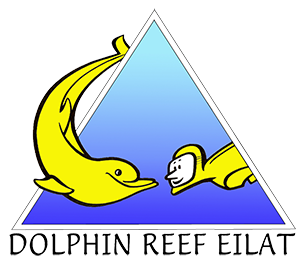
Our Vision
The Dolphin Reef's statement of intent includes three components: environment, society and economy
Environment
Bringing people closer to nature: Foster a connection between humans and the environment, demonstrating personal respect for marine and terrestrial surroundings.
Developing relationships with animals: Strive to create an ideal relationship with animals based on mutual and unconditional respect.
Scientific leadership: Be a leading authority in the scientific research of dolphins and their environment.
Society
Social contribution: As an organization sensitive to its human surroundings, contribute to society while setting an example of respect and equal opportunities for all visitors without discrimination.
Economy
Economic independence: Operate an economically self-sustaining organization where environmental and social messages are integral to the economic strategy.
Employee welfare: Promote the economic well-being of employees, managers, and owners.
Living Conditions
:The unique philosophy defined with the establishment of Dolphin Reef in 1990 is as follows
-
Natural habitat: Dolphins will live in their natural environment—the sea—with minimal interference in their lifestyle.
-
Ensuring quality of life: Our role is to ensure their quality of life by creating a suitable environment based on their natural living standards. We will intervene in their lives only if their existence is at risk or one of these conditions is unmet.
-
Unconditional care: Provide for their needs unconditionally.
-
Open sea access: In due time, a gate to the open sea will be opened, allowing the dolphins to choose whether to stay within the site or venture into the open sea.
Human-Dolphin Connection
-
Mutual and unconditional interaction: We believe that in order to develop, enjoy, and maintain the connection over time, human-dolphin interactions must be based on mutual willingness and no conditions. Both humans and dolphins should see the encounter as an end in itself, not as a means to another goal.
-
Respectful approach: A person who approaches a dolphin encounter with respect, sensitivity, and without seeking anything beyond the encounter itself, will gain the most—feelings of warmth, strength, tranquility, and joy.
-
Dolphin focus: Similarly, the dolphin must focus on the person themselves and not see them as a means to another end.
The responsibility for creating a pressure-free encounter rests with us, humans. While we can control the dolphins’ basic needs (providing food, controlling their living space, interfering in their social lives, etc.), the dolphin can only offer its presence and friendship.
:To ensure the dolphins remain "free" of expectations from us
-
Provide their needs unconditionally and independently of the interaction, or
-
Avoid providing for their needs altogether, thereby not creating expectations from them.
We believe the preferred way to achieve an optimal connection is to combine both approaches, with the constant aim of minimizing our intervention. When intervention is necessary, it should be provided unconditionally.
